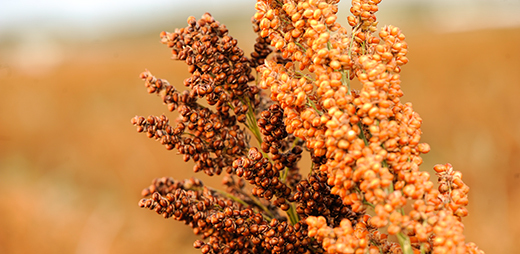Research shows that genomics can match plant variety to climate stresses
http://www.k-state.edu/media/newsreleases/jul15/sorghumstress7915.html[font face=Serif][font size=5]Research shows that genomics can match plant variety to climate stresses[/font]
Thursday, July 9, 2015

A new study on the genomic signatures of adaptation in crop plants can help predict how crop varieties respond to stress from their environments. Researchers applied a drought stress to hundreds of different varieties of sorghum plants to test whether genomic analysis could help predict what varieties would continue to thrive under drought. Researchers cataloged the findings in a database that aims to help sorghum breeders with limited resources in developing countries have better predictions of what sorghum varieties will thrive in the environment and in a growing season's forecasted weather.
[font size=3]MANHATTAN — A new study led by a Kansas State University geneticist has shown that genomic signatures of adaptation in crop plants can help predict how crop varieties respond to stress from their environments.
…
"While sorghum is grown in some of the toughest climates in the world, we need to continue to increase the amount of grain it produces and its resilience to harsh environments because nearly half a billion people depend on sorghum as a staple food source," Morris said. "We want this important crop plant to produce more food and have less loss."
Sampling from the crop gene banks, Morris and colleagues at Cornell University and the International Crops Research Institute for Semi-Arid Tropics, or ICRISAT, took "snapshots" of genetic information in the genomes of about 2,000 sorghum varieties. Because each sorghum variety was from a particular known location in an African or Indian village, the researchers were able to tie the genetic differences of each variety to its survival in a particular environment.
…[/font][/font]
